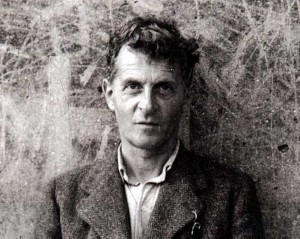Editorial 2009 – Challenges and opportunities
Editor's Desk - Posted on Wednesday, September 2, 2009 23:56 - 0 Comments
‘Of what we cannot speak we must remain silent.’ 
Thus ends Wittgenstein’s Tractatus and this, it seems, is how our government has now come to define people’s right to protest.
In the space of a few weeks we witnessed the scandalous and shameful show of police brutality during the G20 protests, the arrests of 114 activists in Nottingham, allegedly in a ‘pre-emptive’ (that word again) attempt to prevent some undefined catastrophe, as well as the revelations that the police have been spending thousands of pounds of taxpayers’ money (or ‘UK Plc’ as one officer charmingly put it) on recruiting informants within the protest movement and disrupting perfectly peaceful and open activist networks.
For anyone paying attention, these practices are nothing new. Yet many in the mass media did their best to feign shock and dismay at the revelations. Predictably, these abuses have now been quickly reframed as shocking aberrations within an otherwise perfectly adequate law enforcement system. Indeed, the G20 protests have already seen two or three individual officers offered as designated villains (á la Abu Ghraib). Meanwhile, the toothless inquiries that have now been launched within and beyond the IPCC have already shown they had missed crucial point: that officers who broke the rules did so because of the way they had been trained, not in spite of it.
Indeed, reading the media coverage one is struck by the depressing uniformity of the punditocracy whose party line seems to be: “The police do a hard job well, but mistakes occur and that should be fixed.” In other words, it is taken as a truism that the police’s duty to protect the ‘public’ did not in fact extend to the vast majority of those actually present on the day: the protestors. In a surreal inversion of meanings worthy of Orwellian status, “the public” had to be protected from … the public.
As Musab Younis’s piece on this website showcases, it took a great show of discipline by the media to ignore this basic truth. Everyone ‘knew’, it was reasoned, that the only right the protestors were allowed to claim was the right not to be beaten up too badly. By the same token, the right to be kept safe while exercising a basic democratic prerogative was something protestors had somehow automatically foregone through their impudent act of lèse-majesté towards the powers that be.
These are powerful reminders of the monumental challenges lying ahead for the protest/peace movement but also, more encouragingly, a sign that attention is being paid.
Indeed, the extend of the state’s efforts to curb our civil liberties and stifle our right to protest is the very indication of the necessity and relevance of our peace movement and also, ultimately, of its inevitable success …
Vive la revolucion!
Peace etc.,
Hich
HMP Canterbury (July 2009)


Leave a Reply